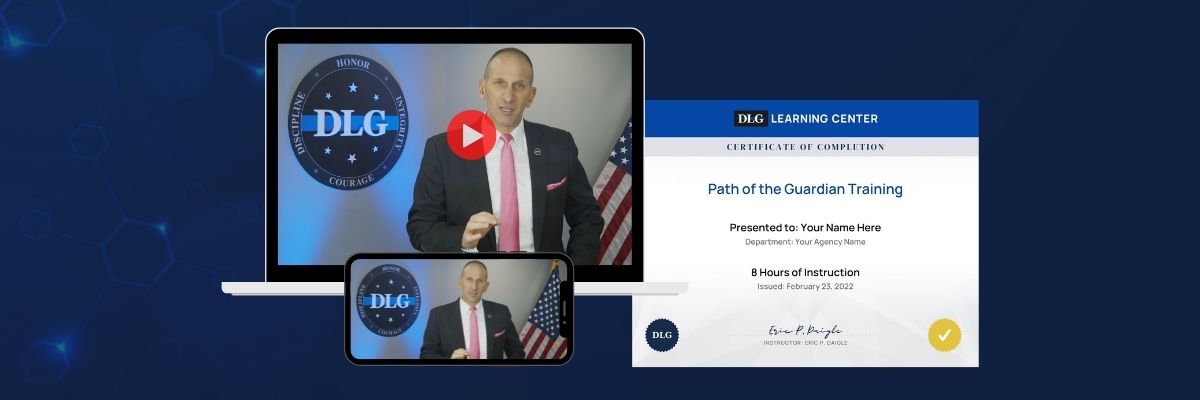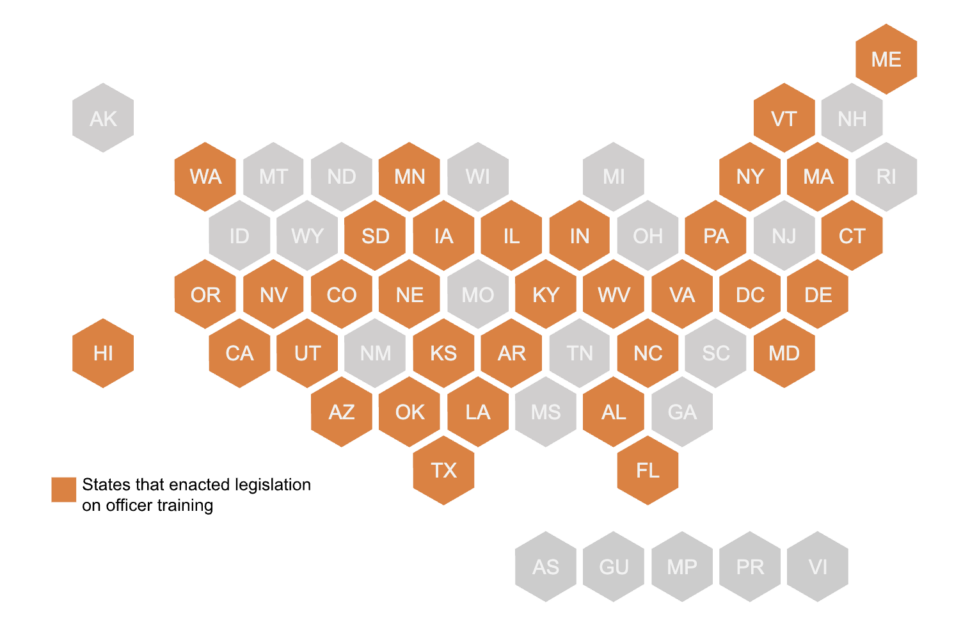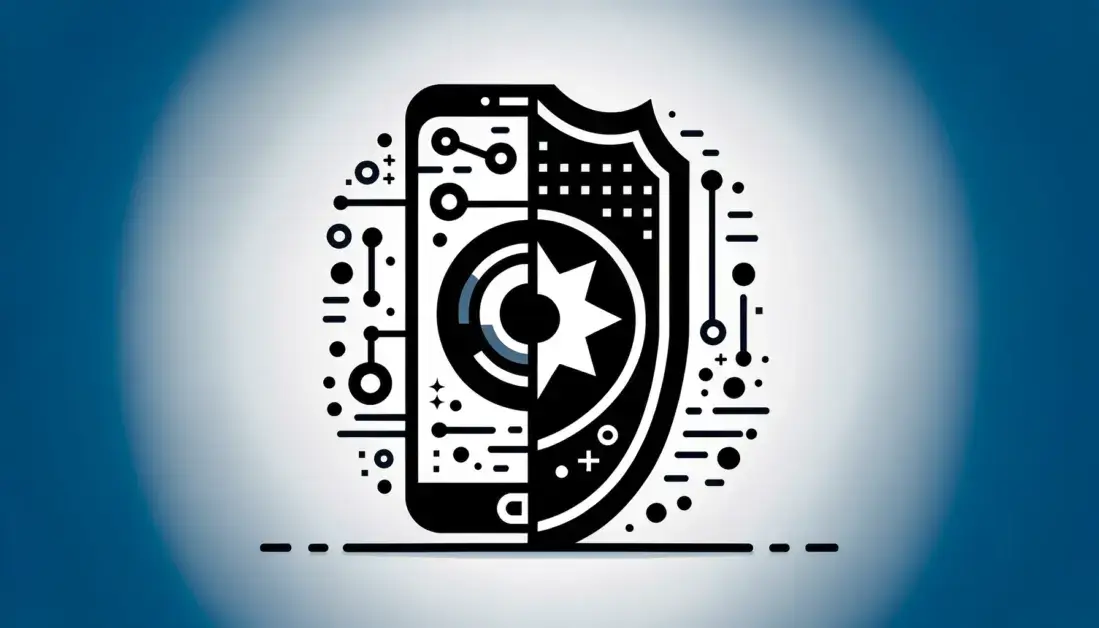On behalf of the hardworking and dedicated staff at Daigle Law Group, I would like to introduce you to our virtual DLG Learning Center and our online Training Program. Our firm specializes in the legal and operational issues facing Law Enforcement, Corrections, and the Security industry. DLG has conducted engaging and informative training for over twenty years with a simple concept: Knowledge is Power!

Executive Summary
Our training impact on this Country started with in-person training and legal updates over the last twenty years. Our dedication to keeping you updated includes engaging and informational training programs along with hundreds of legal articles on “clearly established law” and current trends.
At DLG, we focus on education, not training. We want to enhance your skill set and knowledge base to make you more effective in your decision-making. It is not enough to know what you’re doing; you must understand why you’re doing it. How often have you heard someone say, “this is the way we do it because we have always done it that way”. We must eradicate that thinking from our organizations. If you don’t know why you’re doing it, don’t do it! Remember the WHY you do it makes the WHAT you do effective. For DLG, online training is an attempt to move from traditional training to continued education.
DLG has been providing online training for the last five years. This white paper is developed to identify and outline what we believe to be the benefits of practical online training. These advantages include adult learning principles while remaining budget-conscious and cognizant of growing workforce challenges.
In 2015, we introduced our weekly ten-minute video series called the Path of the Guardian training. These weekly training legal updates focus on Search & Seizure, Use of Force, the First Amendment, and current trends. The success of this online training led to us asking a question: can we provide more officers with quality, effective and efficient training by building an online platform? DLG encompasses training throughout the year on many vital topics. These include courses from our Use of Force Summit, First Amendment Summit, Internal Affairs Training, and Force Investigation trainings. Why should only a few members receive essential training? We strive to have every member of your department obtain this training.
It is important to remember that several of our current officers have obtained college degrees, even high school degrees, online. Traditionally, our training is classroom-based and time- consuming. It’s time to look to the future of training. The square peg in the round hole will not meet the extreme need of practical training.
I ask you to take a few minutes and review the benefits of online training for your department. Your time is valuable, and our team is working continuously to make these training programs effective, interesting, and engaging. So, until next time, help those who need your help, protect those who need your protection, and most importantly, keep yourself and others safe.
Introduction
Evolution of both technology and the public demands on law enforcement personnel have rapidly redefined the job of policing. Actions of the police have dominated every conversation across the county. Law Enforcement actions can dominate nightly news broadcasts, social media posts, and have lead to quickly escalating public protests.
Citizens expect law enforcement personnel to swiftly solve intricate problems and circumstances. This requires law enforcement officers to be educated on a vast array of ever-changing topics. We believe training made necessary by present-day conditions cannot solely be met via the traditional in-person classroom approach.
The more suitable learning option is virtual distance learning. Instructors, located anywhere across the country, can interact with students learning from anywhere. Communication, such as discussion boards on DLG Learning Center courses, accompany various virtual courses and classes. These interactive features provide students the freedom to learn wherever, whenever and partially at their own pace.
Accessibility, Convenience, and Efficiency are the trademarks of distance learning.
Do most law enforcement agencies utilize online training?
Daigle Law Group surveyed over 550 police officers and law enforcement professionals about their agencies online learning and training habits.
Does your agency use online learning for training?
90% of agencies surveyed had transitioned training to online programs.
Does your agency support & require online learning?
80% of agencies surveyed had support on utilizing online training.
Rising Expectations
On March 4, 2015, the Department of Justice released a 102-page report containing its findings from its investigation into the Ferguson Police Department. It was evident in certain sections of the DOJ report that Ferguson Police Department’s policies and procedures often reflected proper and constitutional police practices and standards.
The investigation, however, revealed that officers were not properly trained on the policies and/or no steps were taken to ensure that officers were following Department procedure and practices[1].
The DOJ found that Ferguson officers overall received far too little training as recruits and after becoming police officers, and that officers need a “better knowledge of what law, policy, and integrity require, and concrete training on how to carry out their police responsibilities.”
Since Ferguson, the saturation and content of media coverage on police is directly associated with the volume of state legislation on policing.
Between 2015 and 2016, thirty-four states passed seventy-nine laws affecting policing. The 2020-2021 legislative session resulted in an all-time high in proposed legislation focused on controlling police policies and practices. Forty-eight states have proposed legislation that would have a negative impact on law enforcement or require a change in practice or policy. When policy items become a requirement under new laws, they frequently result in significant consequence for officers that may include suspension, decertification, personal liability, and criminal sanctions[2]”.
Fifteen states have proposed legislation to abolish or limit qualified immunity, twenty-one states proposed legislation to subject officers to personal liability for lawsuits, and nineteen states want to create stricter standards than those found in Graham. When the courts give officers guidance, it creates clearly established law that become training standards. When agencies choose to ignore clearly established law, they assume the liability when the training, policies, and standards of conduct are found to be inconsistent with court rulings[3].

Officer training was among the most common issues addressed by enacted legislation. Since May of 2020, at least 33 states and Washington, D.C. have enacted 65 pieces of legislation.[4]
Classroom Training; The Traditional Approach
Agencies across the country are vastly different in their operations, but training is essential for all departments. Present day training challenges tend to include skill and labor shortages and issues regarding funding, causing departments to only train officers when required, not continually. The problem with the traditional classroom learning approach cannot be reduced to a single issue, but the following disadvantages should be considered:
- Information Overload Leading to Poor Retention
- Strict Schedules and Less Flexibility
- Cost (course & instructor fees, travel costs, shift coverage)
In-person training can be long and exhaustive and it often happens through full day sessions occurring consecutively over multiple days. This type of learning is not sustainable for personnel whose time is already limited.
The more suitable learning option is Distance Learning, which is a kind of education that is conducted beyond physical space and time and is aided by technology. The persistent development of technology has allowed distance learning opportunities to reach students who would not be able to attend classes or generally find it difficult to access these opportunities. Similarly, emerging technology enable officers to learn at their convenience, whether actively on duty or at home.
“Online learning offerings are being designed to enhance the quality of learning experiences and outcomes. One common conjecture is that learning a complex body of knowledge effectively requires a community of learners and that online technologies can be used to expand and support such communities[5]. Another conjecture is that asynchronous discourse is inherently self-reflective and therefore more conducive to deep learning than is synchronous discourse[6]”
Distance Learning Opportunities
A 2010 study conducted by the Department of Education found that online and instructor-led training was statistically equivalent in terms of learning outcomes. The study hoped to answer very important questions in regard to online learning:
- How does the effectiveness of online learning compare with that of face-to-face instruction?
- Does supplementing face-to-face instruction with online instruction enhance learning?
- What practices are associated with more effective online learning?
- What conditions influence the effectiveness of online learning?
In 43 out of 50 learners, the research showed that[7]:
Students in online conditions performed modestly better, on average, than those learning the same material through traditional face-to-face instruction. Learning outcomes for students who engaged in online learning exceeded those of students receiving face-to face instruction, with an average effect size of +0.20 favoring online conditions.[8]
Overall, the study reasoned that “if online instruction is no worse than traditional instruction in terms of student outcomes, then online education initiatives could be justified on the basis of cost efficiency or need to provide access to learners in settings where face-to-face instruction is not feasible…Online learning has become popular because of its potential for providing more flexible access to content and instruction at any time, from any place. Frequently, the focus entails (a) increasing the availability of learning experiences for learners who cannot or choose not to attend traditional face-to-face offerings, (b) assembling and disseminating instructional content more cost efficiently, or (c) enabling instructors to handle more students while maintaining learning outcome quality that is equivalent to that of comparable face-to-face instruction.[9]”
The analysis from the Department of Education concluded that, overall, students doing some, or all, of a course online would rank almost 10% higher than the average classroom student. These findings were based on ninety-nine previous studies in which there were quantitative comparisons of online and classroom performance for the same courses.
Research suggests the use of distance learning is an efficient and potentially more beneficial alternative to traditional classroom learning.
Takeaways
Continuing your training and education improves the overall effectiveness and efficiency of your agency. Continued education and training helps develop interpersonal skills throughout the department by improving competence, communications, and confidence. Training also simultaneously assists law enforcement officers by reducing organizational strain, increasing mental awareness, and focusing the officer in appropriate outlets for thought and progression.
Do police officers believe online training can provide the same knowledge as in-person education?
Daigle Law Group surveyed over 550 police officers and law enforcement professionals about their opinions on the quality of online learning versus the in-person classroom experience.
“I believe that high quality learning can take place without traditional classroom-based training.“
94% of law enforcement believe high quality training can take place online and outside the traditional classroom.
“Overall online learning provides the knowledge and skills to complete my job duties.”
80% of law enforcement believe online training provides the knowledge & skills to complete their job duties.
Continued attention on law enforcement and the colossal amount of legislation has put the need for continued education and training in law enforcement at an all time high.
It is critical for agencies to ensure their officers are adequately trained and well-informed on the departments policy and procedures.
However, lack of funding, hiring and retention challenges, and limited officer availability generates training obstacles. By utilizing virtual training, agencies can produce equivalent or superior learning outcomes. Distance learning and the internet has emerged as a credible approach for making learning more efficient.
Daigle Law Group offers a full suite of Distance Learning programs through our Learning Center. Programs include our Live Virtual Internal Affairs class, Path of the Guardian training series, an Accreditation Manager Certification Program, and a robust course catalog of on-demand courses to choose from.
We must find a way to move forward together. The DLG Learning Center provides your law enforcement agency with engaging and effective online-based training courses that adapt to changing expectations in real-time.
Schedule a free demo with one of our training experts to learn how to build a training program designed to fit your agency’s unique needs.
Take the next step in your training journey
Keep up-to-date on current trends and training in law enforcement. Our weekly online training program, Path of the Guardian, is the better and most efficient way to achieve your training goals.
References
[1] https://dlglearningcenter.com/doj-review-of-ferguson-is-it-a-blueprint
[2] https://dlglearningcenter.com/finding-a-way-forward-taking-back-responsibility-in-law-enforcement/
[3] https://dlglearningcenter.com/finding-a-way-forward-taking-back-responsibility-in-law-enforcement/
[5] (Bransford, Brown and Cocking 1999; Riel and Polin 2004; Schwen and Hara 2004; Vrasidas and Glass 2004)
[6] (Harlen and Doubler 2004; Hiltz and Goldman 2005; Jaffee et al. 2006). (https://www2.ed.gov/rschstat/eval/tech/evidence-based-practices/finalreport.pdf)
[7] The meta-analysis was run also with just the 43 studies with older learners. Results were very similar to those for the meta-analysis including all 50 contrasts. Variations in findings when K-12 studies are removed are described in footnotes.
[8] The + sign indicates that the outcome for the treatment condition was larger than that for the control condition. A – sign before an effect estimate would indicate that students in the control condition had stronger outcomes than those in the treatment condition. Cohen (1992) suggests that effect sizes of .20 can be considered “small,” those of approximately .50 “medium,” and those of .80 or greater “large.”
[9] https://www2.ed.gov/rschstat/eval/tech/evidence-based-practices/finalreport.pdf



